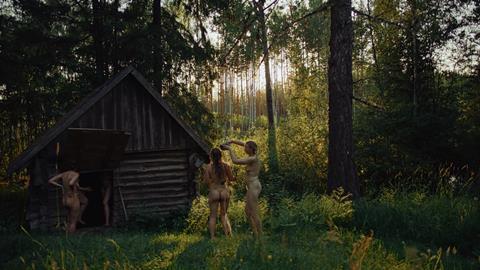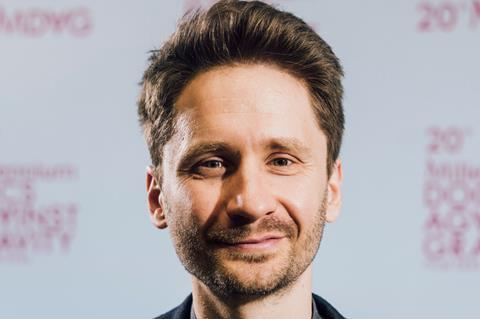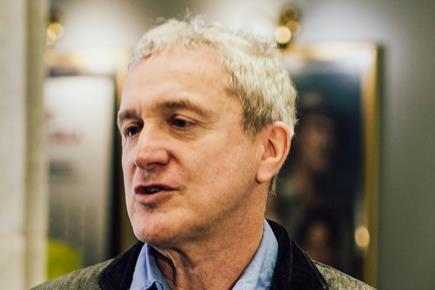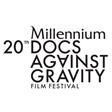
Polish festival Millennium Docs Against Gravity (MDAG) is marking its 20th edition this month with its trademark mix of award-winning films, world and European premieres, Q&As and lively conversation as well as some anniversary special events for audiences and industry attendees.
The festival will run from May 12-21 in cinemas in eight Polish cities (Warsaw, Wrocław, Gdynia, Poznań, Katowice, Łódź, Bydgoszcz and Lublin) and online for the following two weeks.
A dozen films will compete for the festival’s main competition prize which includes Polish cinema distribution and €8,000, funded by the Poland’s Bank Millennium. Previous winners include in Flee, Honeyland and Minding the Gap.
This year’s line-up includes the Polish premiere of Estonian filmmaker Anna Hints’ Smoke Sauna Sisterhood, a film about a group of women who meet to talk love, loss, self-esteem and the patriarchy. The film won the World Cinema best directing award at this year’s Sundance Film Festival.
Also screening are Laura Poitras’ Venice 2022 Golden Bear-winner All The Beauty And The Bloodshed, Heba Khaled, Talal Derki and Ali Wajeeh’s Under The Sky Of Damascus, about a tight-knit group of young Syrian women who aim to put on a play about the culture of misogyny and sexual abuse in war-torn Syria, and Lukasz Konopa and Emil Langballe’s CPH:Dox premiere Theatre Of Violence, about the trial of a former Ugandan child soldier at the International Criminal Court.

Although very different in style, artistic director and head of film distribution Karol Piekarczyk says there are definite patterns running through the festival, particularly the main competition.
“There are important themes every year that we want to highlight. This year it’s sisterhood, it’s women power, and feminism,” he says “There’s also the ever persistent issue of climate change.”
This will be Piekarczyk’s third edition as artistic director, working closely with MDAG’s founder, CEO and festival director Artur Liebhart.
The 20th anniversary celebrations see Liebhart choose 20 films from MDAG’s life that have made a special contribution to the festival’s history and documentary cinema at large. Ten will be shown in cinemas and 10 will be available online.
“The films I have picked for the cinema screenings are very difficult to find if not completely unavailable online,” he says. “They have cinematic value and they really talk to today’s reality.”
Indeed, one of the films will be Finnish director Pirjo Honkasalo’s 2004 title The 3 Rooms Of Melancholia, about how the Chechen War has psychologically affected children in Russia and Chechnya.
There will also be several themed sections aiming to spark debate around important issues being tackled on the big screen. They include ‘The Power of Sisterhood’ bringing together films exploring the need for solidarity, safe spaces for women and the ongoing fight for collective action to end violence and inequality against women around the world.
During the festival, there will be a safe space in Warsaw’s Kinoteka cinema, an inclusive area for talking about psychology and sexuality, with counselling offered to any audience member particularly affected by the festival films.
Films screening include the world premiere of Polish filmmaker Aga Borzym’s Girls’ Stories, following two girls as they navigate life n their early teens.

Other sections include ‘Se_x Work’, a section devoted to porn and sex work across the globe, ’We’re Here, We’re Queer’ showcasing films about the quality of life of LGBTQ+ people in different parts of the world and ‘The Power of Words’, a look at the works and lives of literary figures such as Annie Ernaux, Stanisław Lem and Umberto Eco.
The festival’s industry programme includes a debate on the future and purpose of documentary cinema with award-winning Danish filmmaker Jonas Rasmussen (Flee) and Oscar-nominated Polish director Hanna Polak (The Children of Leningradsky). David France, the US writer and filmmaker, renowned for How To Survive A Plague, The Death And Life of Marsha P Johnson and Welcome To Chechnya, will present a masterclass.
Polish audiences should prepare for a gravity-defying 10 days of films and conversation.
Contact: Sara Wołczyńska



























No comments yet